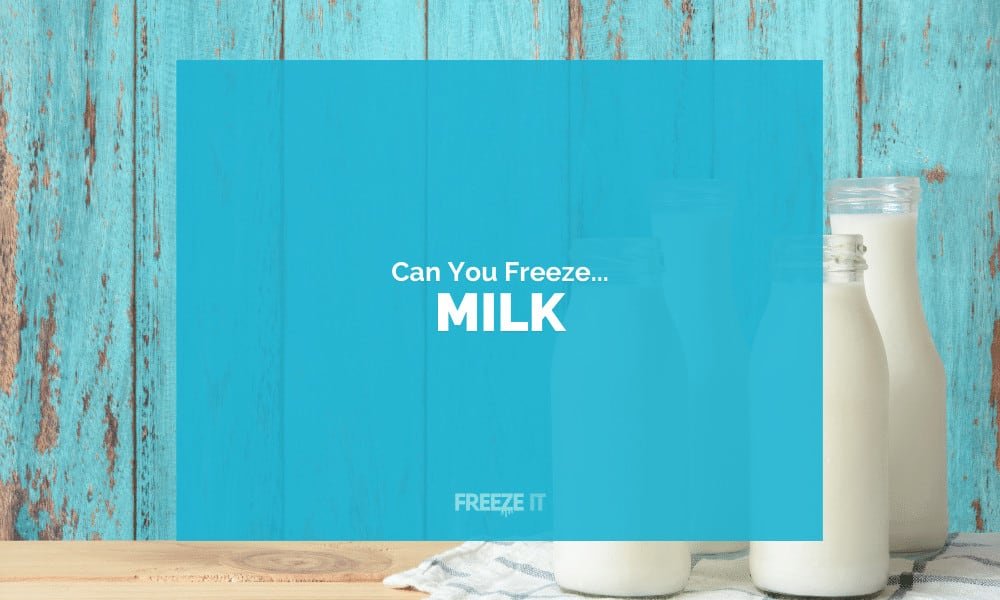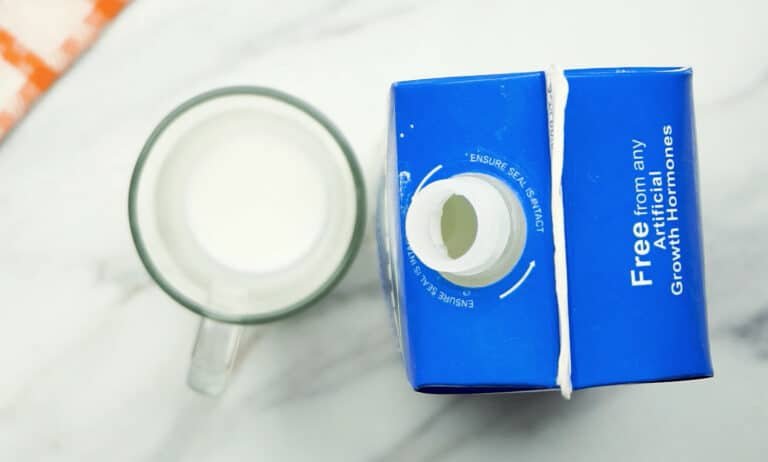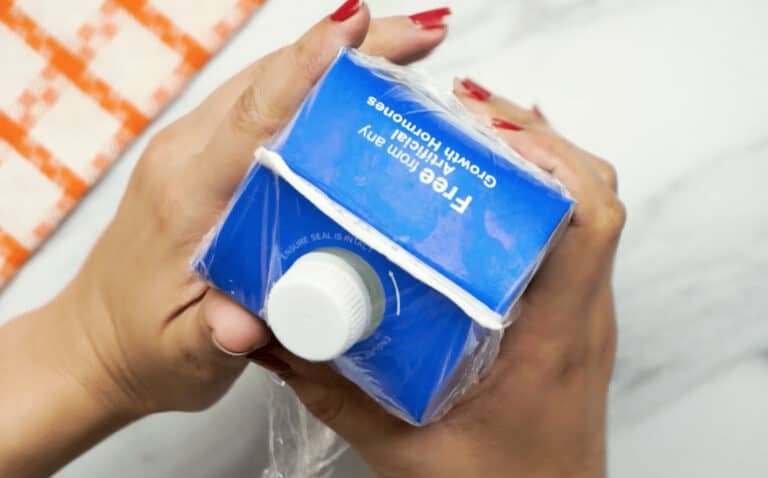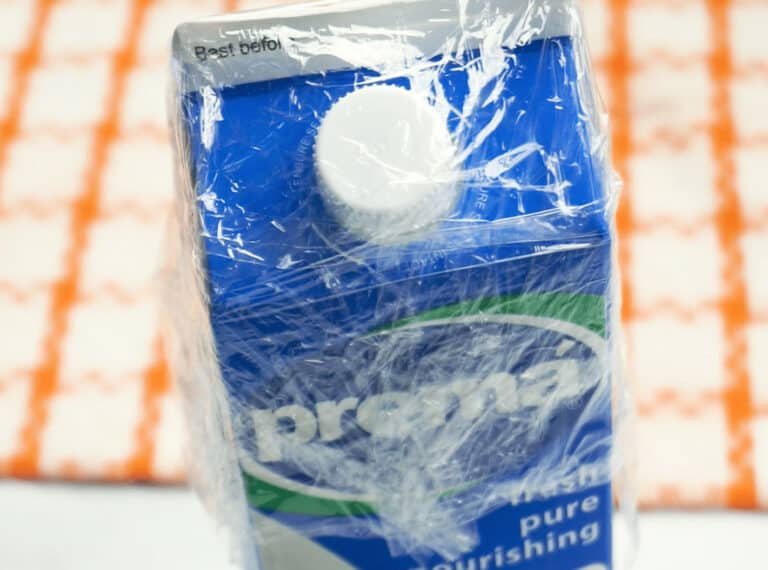You’re probably aware that one of the best ways to preserve a whole variety of foods is to freeze them. But the question you’re asking is can you freeze milk and how do you go about doing it?
Can You Freeze Milk?
Yes, you can freeze milk for up to 3 months. You can choose to freeze milk into ice cubes or thick freezer bags. You can even freeze milk in the carton it came in, in some circumstances.
Do Does Milk freeze well? Yes
Can you refreeze Milk? No
Yes, skimmed milk can be frozen. It tends to be thinner than whole milk so will freeze solid quicker with less separation.
Semi-skimmed milk, like all other types of milk, can be frozen for up to 3 months in cartons, bags or ice cube trays.
Yes, you certainly can freeze most dairy alternatives. There are now plenty on the market and we’ve covered a range of them including almond milk, soya milk, oat milk and coconut milk.
Our Tips for Freezing Milk
If you want things to go well when freezing milk then, in our experience, you’ll want to follow some basic tips:
Don’t Panic When It Turns Yellow
In the freezer, your milk will take on a yellow tint. It won’t look great, but it has not gone off! It’s the riboflavin content in the milk which freezes at a different rate to the rest of the milk. It’s harmless – don’t worry!
Allow Room for Expansion
All liquids will expand when frozen, so you must give your milk room to expand too. It won’t double in size – don’t worry! You need to leave an inch or so of room in the top of containers.
Consider Your Milk Consumption
When freezing anything, you need to consider how you personally consume it. If you have a little drop in a coffee every so often then freezing bags of milk might not be the best approach.
However, if you’re a family of 5 who all have cereal every morning, then having a full carton might be best.
How Long Can You Freeze Milk?
Milk will keep for around 3 months in the freezer – any longer, and the texture can become quite unpalatable.
When you freeze the milk, make sure you scribble on the side the date on which it was frozen so you can ensure it is used.
Milk will usually last for around 1 week in the fridge or until the use-by date on the carton, whichever is sooner.
How Do You Defrost Milk?
To defrost milk, your best bet is to place it in the fridge to thaw out slowly. Once thawed, give it a good shake to try and combine the water and fat content.
Unfortunately, and especially if you’ve frozen a larger bottle, thawing milk can actually take quite a long time. If you’re pushed for time, you can fill your sink with cold water and allow it to thaw in the cold water.
It will still take some time but can speed up the process a little. Whatever you do, don’t use the microwave to thaw it.
Can You Refreeze Milk?
We would strongly advise against refreezing milk. It’s rare that refreezing is acceptable for any food but none more so than dairy products.
When you freeze and then thaw milk, you break down some of the milk’s immune components which protect it from bacteria. If you refreeze the milk, there’s a significantly greater chance of bacteria contaminating your milk.
Does Milk Freeze Well?
It does freeze well, but there is a risk of separation like a lot of dairy products. You may find that the fat content and the water content break apart once you thaw your milk out.
This can make the texture quite grainy, making it particularly unpleasant to drink.
The good news is that the taste won’t be affected so frozen milk can still work well in baking, cooking and even mixed in with your cereal in the morning.
You can remedy some of this separation, however. Pour the contents of your thawed milk into a blender for around 30 seconds. This will help to combine some of the separated fats back into the water.
It won’t be perfect but can go some way to improving the texture.
Oh… And be warned that your milk will turn yellow when it is frozen. This doesn’t mean it has gone off. It’s to do with the milk’s riboflavin content and the fact that it freezes at a slower rate than the rest of the milk.
It’s all quite scientific, but you can read more about riboflavin and why it goes yellow here.
Related FAQs
If you’ve still got questions about freezing milk or milk in general, then these may help:
Freezing glass milk bottles is not something we would recommend. Not only are the seals likely to be pretty poor, but there is a risk that the milk will expand and crack the glass bottles if they are filled to the top. Instead, use the bag method above to freeze your milk in the safest way.
Sources
We have verified the information on this page using the following resources:






